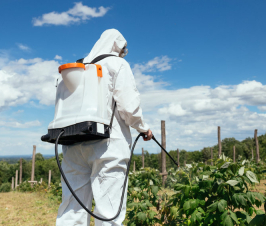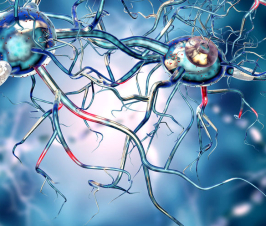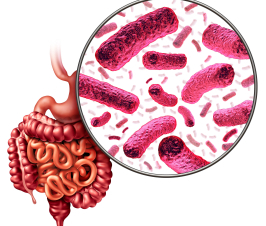Node Smith, ND
There have been studies that have found a significant association between 2 agricultural pesticides – paraquat and maneb – and Parkinson’s disease. Until now, it has not been understood why exposure to these chemicals puts some at increased risk, but not others. A new study from the University of Guelph has uncovered why this disparity exists.1
Exposure to low levels of agrochemicals disrupts cells, mimicking effects of mutations that cause Parkinson’s disease
It has been shown that exposure to low levels of these agrochemicals disrupts cells in a way that actually mimics the effects of mutations that cause Parkinson’s disease. When these chemicals are added to people with a predisposition to Parkinson’s disease, the risk rises dramatically.
Genetically predisposed individuals were seen to have a 250-percent higher risk
Individuals with genetic predisposition were seen to have a 250-percent higher risk of developing Parkinson’s disease than the average population. The study came out of an interest in this more susceptible population.
Paraquat and maneb
Paraquat and maneb – These pesticides are used as crops grow, and to prevent spoilage.
How the study was performed
The study used stem cells from Parkinson’s patients who had a genetic mutation in a gene called synuclein, which is very highly associated with an increase in Parkinson’s risk, as well as normal embryonic stem cells that the mutation was then added to through gene editing.
First research of its kind, reflecting what occurs with pesticide exposure inside the cells
The link between pesticides and Parkinson’s disease has largely been based on animal cells and epidemiological research that showed increase risk among farmers. This is the first research showing what is happening with pesticide exposure inside the cells.
Researchers made dopamine-producing neurons from 2 types of stem cells
The researchers made dopamine-producing neurons from the 2 types of stem cells – these are the types of neurons that are affected in Parkinson’s disease – then exposed each to paraquat and maneb.
Mitochondria, the energy producing part of the cell, were prevented from moving around within the cell to provide energy for the neuron. Neurons from Parkinson’s patients and individuals who had genetic risk factor introduced became dysfunctional at doses of the pesticide below what the EPA reports as not having an effect. Higher doses were seen to effect function in normal neurons.
Conclusion
The authors of the study conclude that “[t]his study shows that everyone is not equal, and these safety standards need to be updated in order to protect those who are more susceptible and may not even know it.”
Source:
- Stykel MG, Humphries K, Kirby MP, et al. Nitration of microtubules blocks axonal mitochondrial transport in a human pluripotent stem cell model of Parkinson’s disease. The FASEB Journal, 2018; fj.201700759RR DOI: 10.1096/fj.201700759RR
Image Copyright: <a href=’https://www.123rf.com/profile_encierro’>encierro / 123RF Stock Photo</a>
 Node Smith, ND, is a naturopathic physician in Portland, OR and associate editor for NDNR. He has been instrumental in maintaining a firm connection to the philosophy and heritage of naturopathic medicine among the next generation of docs. He helped found the first multi-generational experiential retreat, which brings elders, alumni, and students together for a weekend camp-out where naturopathic medicine and medical philosophy are experienced in nature. Four years ago he helped found the non-profit, Association for Naturopathic ReVitalization (ANR), for which he serves as the board chairman. ANR has a mission to inspire health practitioners to embody the naturopathic principles through experiential education. Node also has a firm belief that the next era of naturopathic medicine will see a resurgence of in-patient facilities which use fasting, earthing, hydrotherapy and homeopathy to bring people back from chronic diseases of modern living; he is involved in numerous conversations and projects to bring about this vision.
Node Smith, ND, is a naturopathic physician in Portland, OR and associate editor for NDNR. He has been instrumental in maintaining a firm connection to the philosophy and heritage of naturopathic medicine among the next generation of docs. He helped found the first multi-generational experiential retreat, which brings elders, alumni, and students together for a weekend camp-out where naturopathic medicine and medical philosophy are experienced in nature. Four years ago he helped found the non-profit, Association for Naturopathic ReVitalization (ANR), for which he serves as the board chairman. ANR has a mission to inspire health practitioners to embody the naturopathic principles through experiential education. Node also has a firm belief that the next era of naturopathic medicine will see a resurgence of in-patient facilities which use fasting, earthing, hydrotherapy and homeopathy to bring people back from chronic diseases of modern living; he is involved in numerous conversations and projects to bring about this vision.

















